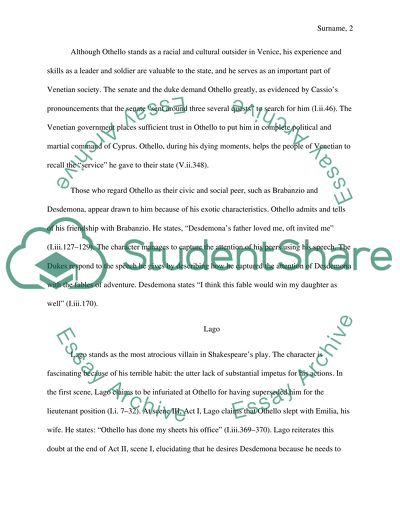Cite this document
(“Othello Essay Example | Topics and Well Written Essays - 1000 words - 10”, n.d.)
Retrieved de https://studentshare.org/english/1641689-othello
Retrieved de https://studentshare.org/english/1641689-othello
(Othello Essay Example | Topics and Well Written Essays - 1000 Words - 10)
https://studentshare.org/english/1641689-othello.
https://studentshare.org/english/1641689-othello.
“Othello Essay Example | Topics and Well Written Essays - 1000 Words - 10”, n.d. https://studentshare.org/english/1641689-othello.


